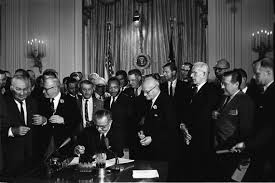By Juan Williams ~ LA Times ~ August 12, 2018
It was one year ago this weekend that hundreds of neo-Nazis and white supremacists descended on Charlottesville, Va., for the now-infamous “Unite the Right” rally. We all know what happened next. Counter-protesters showed up to condemn their hateful message and the rally descended into violence, leading to the senseless death of Heather Heyer, a 32-year-old activist and paralegal. Afterward, unbelievably, President Trump placed blame on “both sides.”
Many prominent Republicans denounced the president’s remarks. “There is no moral relativism when it comes to neo-Nazis,” House Speaker Paul D. Ryan said at the time. Rep. Mark Meadows, who chairs the House Freedom Caucus, also issued a rebuke: “We must stand united in opposition to this hate in no uncertain terms.” Sen. Cory Gardner, R-Colo., addressed Trump directly: “Mr. President, we must call evil by its name.”
But in the year since Charlottesville, Republicans in Congress have increasingly turned a blind eye to the president’s racial animus. They also appear to have lost interest in a host of urgent policy issues related to racial inequity: enforcing the Voting Rights Act, reforming the criminal justice system, finding a real fix on immigration.
Meanwhile, their party’s candidates exhibit ever more blatant racism. Seth Grossman, a Republican nominee for Congress in New Jersey, has called the idea of diversity “a bunch of crap.” Corey Stewart, the Senate nominee from Virginia, flaunts his ties to an organizer of the Charlottesville rally and displays the Confederate flag at his campaign events. Arthur Jones and John Fitzgerald, House nominees in Illinois and California, respectively, are proud Holocaust deniers.
Their cowardice stands in stark contrast to Republican leadership during the racial turmoil of the 1960s. Without Republican support, there would have been no Civil Rights Act of 1964, no Voting Rights Act of 1965 and no Fair Housing Act of 1968.
America has lost a Republican Party that was willing to work on racial division.
It’s almost as if Republicans have forgotten the central role they played in civil rights history. Here’s a reminder.
To pass the Civil Rights Act, President Johnson needed the support of Republicans in the Senate. He knew that Democrats from the South, strong segregationists, could block the bill. So he asked top Democrats in Congress to reach out to influential Republicans. “The bill can’t pass unless you get Dirksen,” Johnson told Senate Majority Whip Humbert Humphrey, referring to Senate Minority Leader Everett Dirksen.
Dirksen came from a conservative Illinois town where few blacks lived, but he admired the legacy of his party’s founder, Abraham Lincoln. He agreed to pull in Republican support for the bill.
Dirksen saw to it that the phrase “pattern or practice” was inserted before “discrimination” in the text of the bill, ensuring that Washington could not shut down private businesses unless they were systematically engaging in discrimination. He also added language to guarantee that when allegations of employment discrimination came up, state and local governments had time to take action before the Justice Department stepped in.
The strategy worked. Dirksen got enough Republicans to invoke cloture, and the Civil Rights Act was passed. Republican support proved equally critical to the Voting Rights Act and the Fair Housing Act.
In the decades that followed, Republicans made it clear that there was no place in their party for racists, even as white segregationists fled the Democratic Party.
When, in 1981, members of the Ku Klux Klan lynched a black teen named Michael Donald in Alabama, President Reagan condemned them in a speech to the NAACP, saying they “perverted notions of what America is about.”
In 1996, Bob Dole, then the Republican presidential nominee, told his convention crowd that any bigots in the audience should be aware: “The exits, which are clearly marked, are for you to walk out of.”
Even in recent years, some Republicans have led bipartisan efforts to address racial inequality. Sen. Chuck Grassley, R-Iowa, introduced legislation in 2015 to reform the criminal justice system, which imprisons black men at alarmingly disproportionate rates, by reducing mandatory minimum sentences for nonviolent crimes. When President Obama said he would sign the bill if it came to him within the year, Grassley joked that he was “not used to the president calling for the rapid passage of my bills.”
Although both parties backed the legislation, the election of Trump and other factors got in the way. Grassley re-introduced the bill in 2017. After Atty. Gen. Jeff Sessions called it a “grave error,” Grassley responded that he was “incensed” by the remark. Sen. Rand Paul, R-Ky., also criticized Sessions, explaining that “mandatory minimum sentences have unfairly and disproportionately incarcerated a generation of minorities.”
The party is continuing to hold back well-meaning individuals within it. Paul and another Republican senator, James Lankford of Oklahoma, joined three Democrats — Dick Durbin, Bob Casey, Cory Booker — to re-introduce a bill last year that would eliminate juvenile solitary confinement. But Republicans in Congress have left the bill for dead.
And Rep. Jim Sensenbrenner, a Republican from Wisconsin, joined Rep. John Conyers, a Democrat from Michigan, to re-introduce the Voting Rights Amendment bill. The legislation would update the formula used to determine which states need to get federal permission before changing registration and voting practices. The bill has gone nowhere.
During the final stretch of his presidential campaign, Trump posed a condescending question to African Americans: By voting for him, “What the hell do you have to lose?”
We now know a very important part of the answer.
America has lost a Republican Party that was willing to work on racial division. We have lost a GOP that, less than a decade ago, was capable of issuing a report calling for more outreach to black, Latino and Asian voters. We have lost a party that once knew how to reject racial bigotry and heinous shows of force by white supremacists.
According to a poll conducted in June by Quinnipiac University, 55% of Americans agree that “President Trump has emboldened people who hold racist beliefs to express those beliefs publicly.” Another recent poll found that 64% of Americans think racism is a “major problem,” and that 45% think race relations are getting worse.
This country was once capable of uniting against racism. If we want that America to return, we will need the efforts of both parties.
Source: Juan Williams ~ LA Times ~ August 12, 2018







